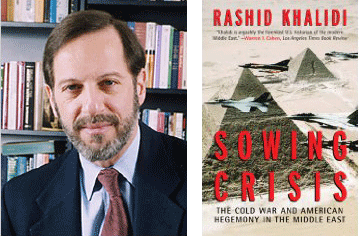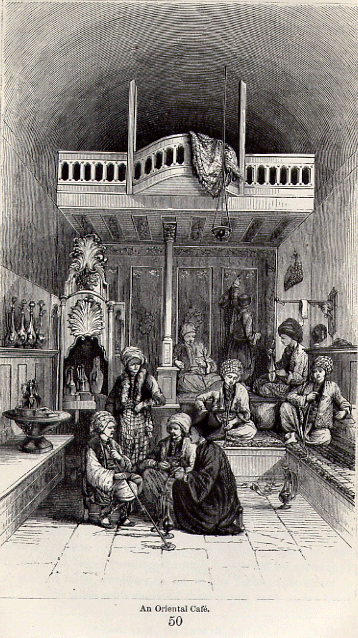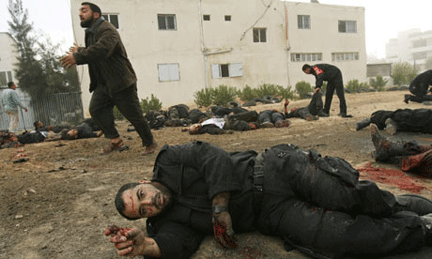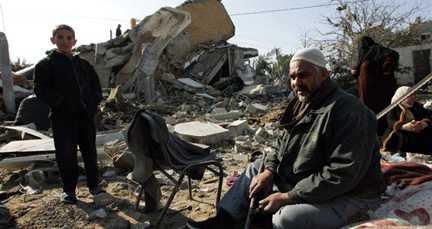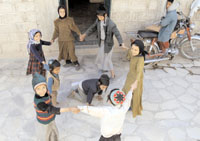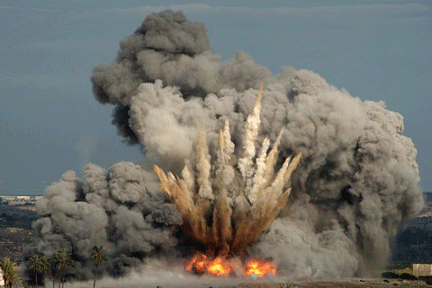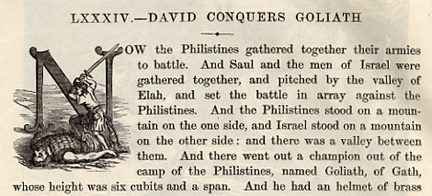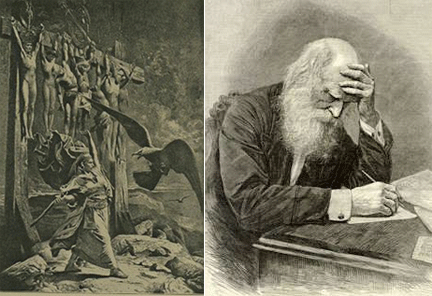
Rizpah protecting the bodies of her sons, by George Becker, left; William Cullen Bryant, right
With Gaza ablaze, the political woes of contemporary Palestinians continue to echo past tragedies on the same blood-drenched ground. Consider the vengeance of the Gibeonites, both a purge and a scourge in the early days of Israel’s King David. Setting aside who is who for the moment, the biblical account recorded in the book of II Samuel describes a weak David with a struggling economy (called a famine in those days). The Gibeonites, who sought vengeance for their slaughter by the former King Saul, demanded seven of his sons, and David agreed. The princes were soon hanged in eye-for-an-eye justice. Yet the queen mother of two of the sons spent five months protecting the bodies from being devoured by beasts not shaped like humans. Her name was Rizpah and she can be seen as a maternal heroine or a distraught widow.
Like so many of these seemingly sacred stories, almost any moral can be teased out of the narrative. Should the lesson be “Do not make deals with the enemy, even when you are weak”? I can see both supporters of Hamas and Israeli hardliners applauding the message. Or might it be possible to read the story in a more sane hindsight as a referendum on the futility of vengeance? Were the matter simply an eye for an eye, it could theoretically stop after the first act of vengeance, but this region has seen an infinity of eye-gouging that no blessed peacemakers have yet been able to stop. My own preference is for Rizpah fighting off the vultures of violence, less an act of protecting only one’s own than defiance of the perpetual killing that makes martyrdom a virtue on both sides.
Once again, I prefer to tune out the talking heads and let a poet of the past speak: Continue reading Rizpah and the Politics of Vengeance →
